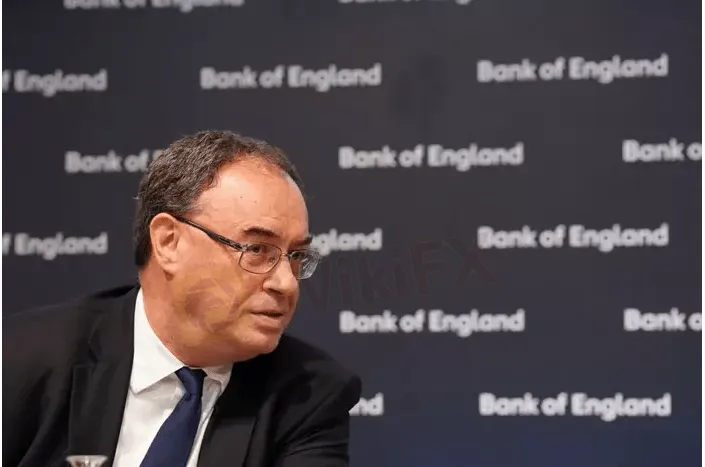简体中文
繁體中文
English
Pусский
日本語
ภาษาไทย
Tiếng Việt
Bahasa Indonesia
Español
हिन्दी
Filippiiniläinen
Français
Deutsch
Português
Türkçe
한국어
العربية
UK inflation still likely to fall sharply next year, BoE’s Bailey says
Abstract:Bank of England Governor Andrew Bailey said on Monday that he thought the BoE’s most recent forecast for inflation, showing it was likely to fall sharply next year, remained valid.

Bailey told a parliamentary committee that he did not expect a new set of forecasts due on Aug. 4, which BoE staff were preparing, to show a fundamentally different picture.
“I always go into forecasts with an open mind, and thats critical, but I think the basic fundamentals of that profile remain in place today,” Bailey told lawmakers.
Inflation, which hit a 40-year high of 9.1% in May, was likely to be back at its 2% target in about two years, he added.
However, possible further upward pressure on gas prices following Russias invasion of Ukraine, or more persistent domestic cost pressures could change that, Bailey said.
The BoE had previously forecast that inflation would peak at just over 11% in October this year when regulated power tariffs are set to jump again.
Investors see a nearly 70% chance of a bigger-than-usual, half-percentage-point rate hike by the BoE on Aug. 4. The central bank has already raised borrowing costs five times since December.
The BoE said last month it was ready to act “forcefully” if needed to prevent high inflation from becoming embedded in the economy.
Bailey said there was “a range of things” on the table for the BoEs Monetary Policy Committee in August. Policymakers had to assess how much the shock to incomes from high energy prices would cool inflation through lower spending on other goods and services.
Bailey declined Labour Party lawmakers‘ requests for comment on the inflationary potential of tax cuts being proposed by candidates in the Conservative Party’s leadership contest, including new finance minister Nadhim Zahawi.
But Bailey did say it was important that the BoEs operational independence was respected at a time when some lawmakers have blamed it for high inflation and forecasters expect inflation to be slower to fall in Britain than elsewhere.

Disclaimer:
The views in this article only represent the author's personal views, and do not constitute investment advice on this platform. This platform does not guarantee the accuracy, completeness and timeliness of the information in the article, and will not be liable for any loss caused by the use of or reliance on the information in the article.
Read more

OPEC's Profound Influence on the Oil Market
At present, oil prices remain relatively stable, but global economic recovery and shifting market demands continue to drive price fluctuations. Amid an uncertain global economic and geopolitical landscape, OPEC’s policies and actions remain key determinants of oil prices.

What Are The Top 5 Cryptocurrency Predictions For 2025?
Discover the top 5 cryptocurrency predictions for 2025, including Ethereum's rise, a potential bear market, meme coin struggles, and regulatory shifts.

Think Before You Click: Malaysian Loses RM240,000 to Investment Scam
A manager from Sibu, Malaysia, lost RM240,000 to a fraudulent investment scheme.

What Euro Investors Can't Afford to Miss
For euro investors, geopolitical factors, inflation data, and the European Central Bank's policy direction will determine the market trends over the next few months.
WikiFX Broker
Latest News
Will Gold Break $2,625 Amid Fed Caution and Geopolitical Risks?
ECB Targets 2% Inflation as Medium-Term Goal
New Year, New Surge: Will Oil Prices Keep Rising?
PH SEC Issues Crypto Guidelines for Crypto-Asset Service Providers
FTX Chapter 11 Restructuring Plan Activated: $16 Billion to Be Distributed
Think Before You Click: Malaysian Loses RM240,000 to Investment Scam
Bithumb CEO Jailed and Fined Over Bribery Scheme in Token Listing Process
WikiFX Review: Something You Need to Know About Saxo
Is PGM Broker Reliable? Full Review
Terraform Labs Co-founder Do Kwon Extradited to the U.S. to Face Fraud Charges
Currency Calculator






